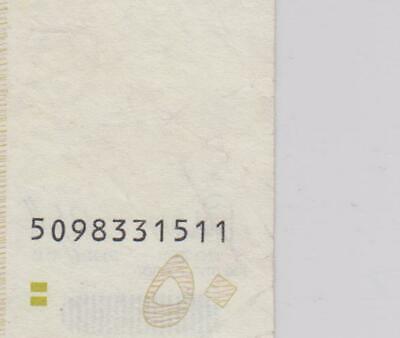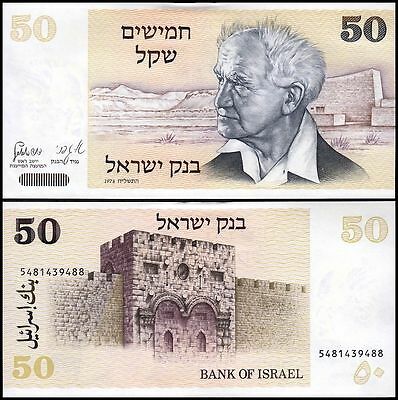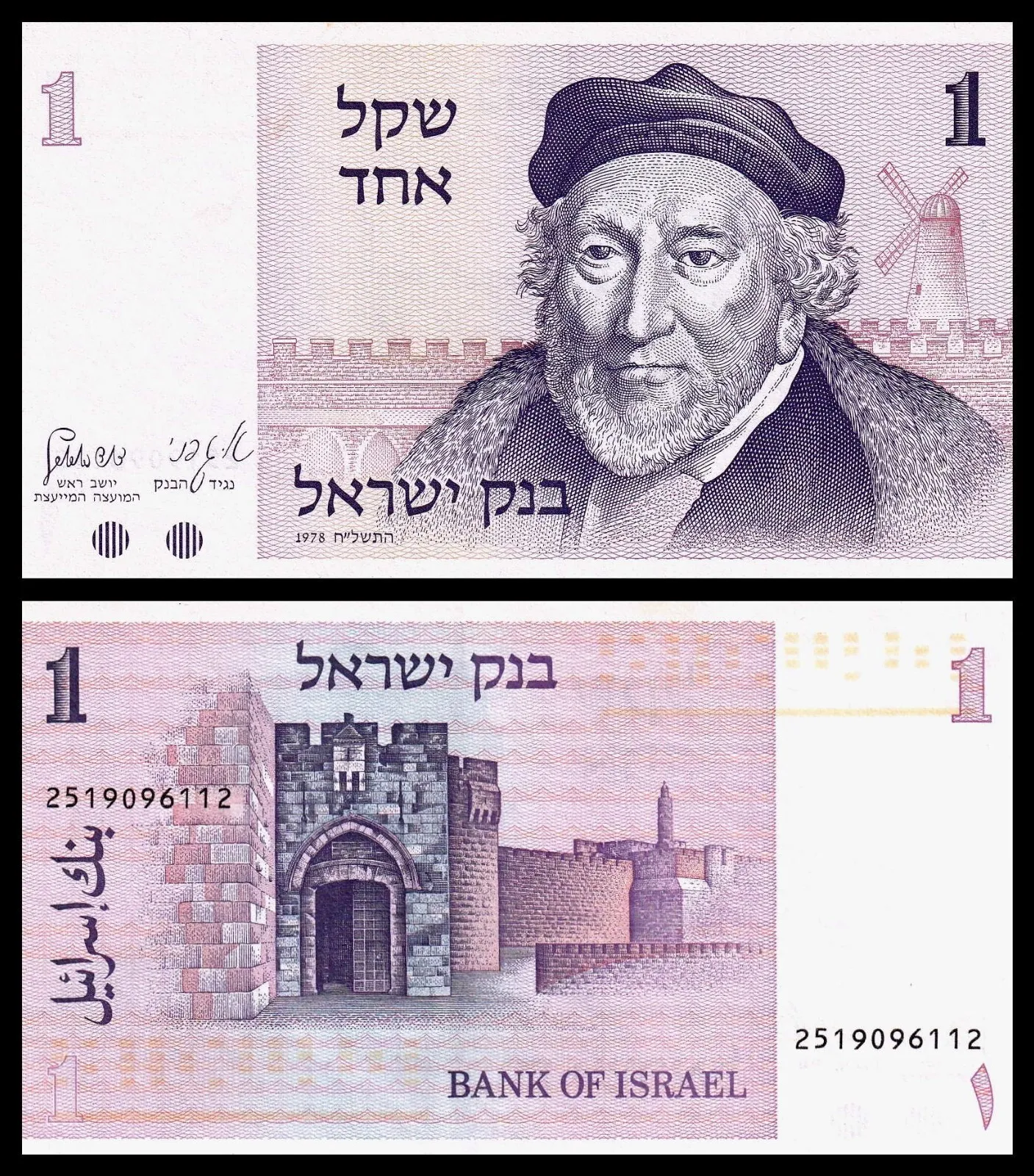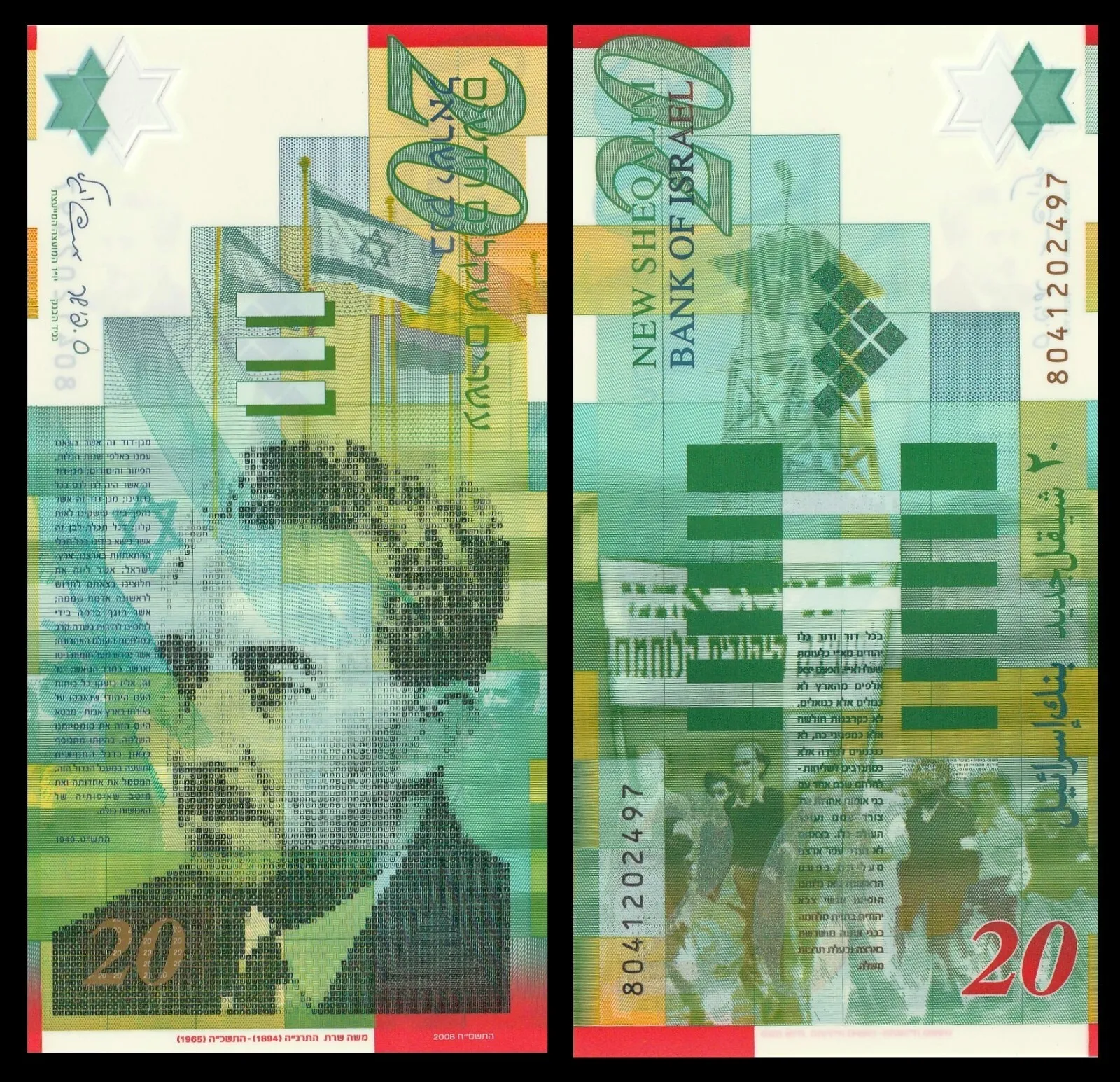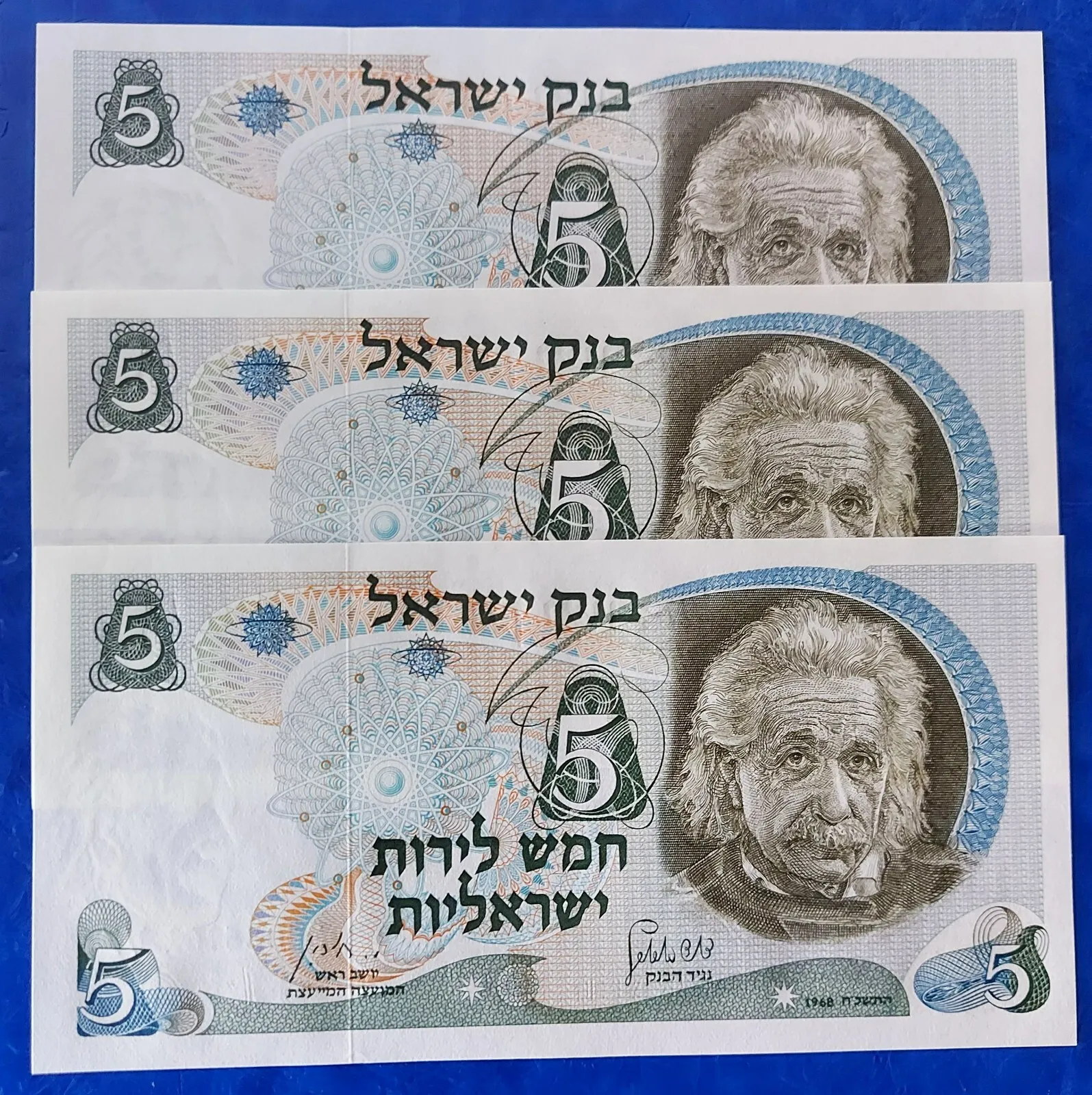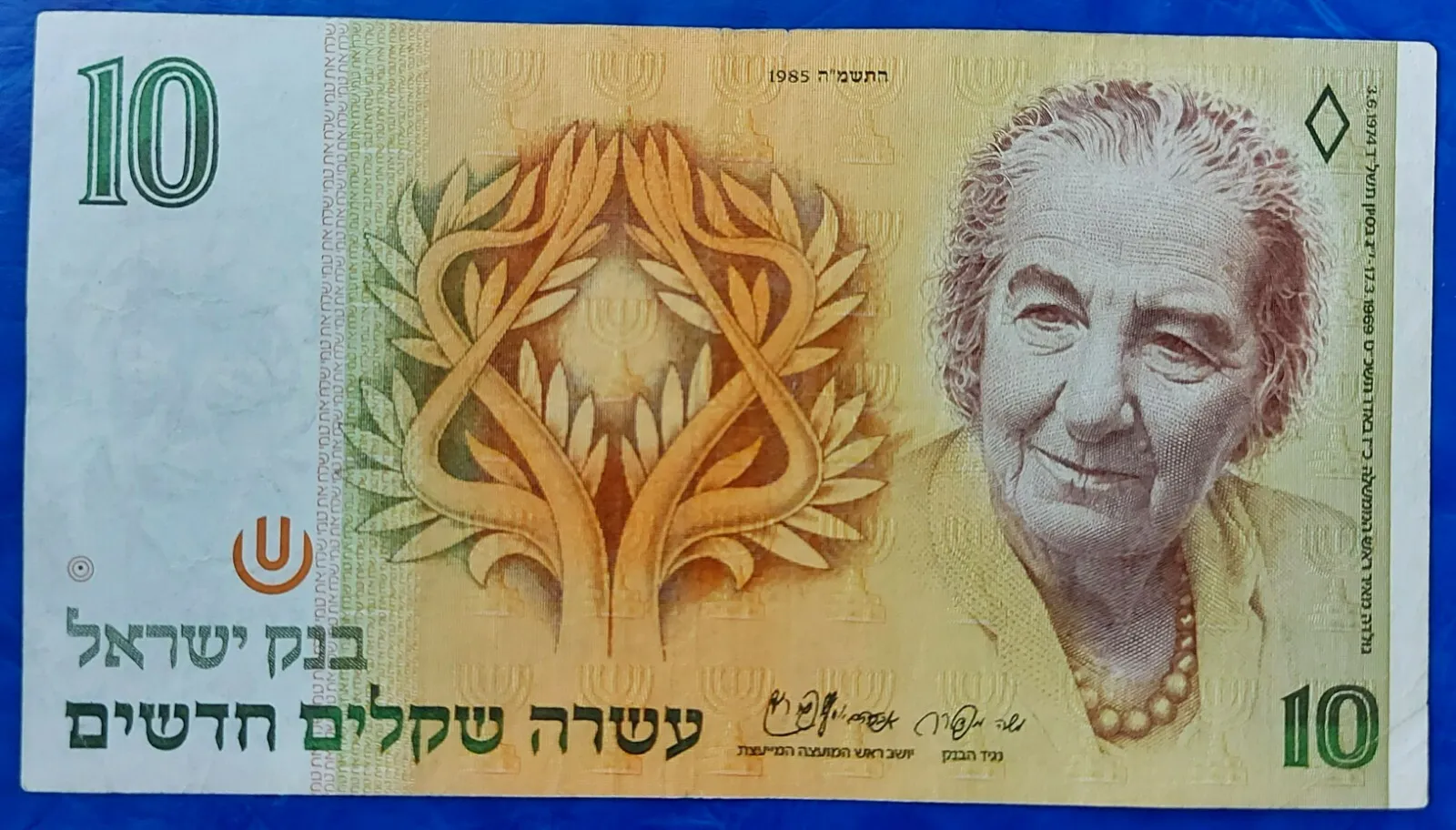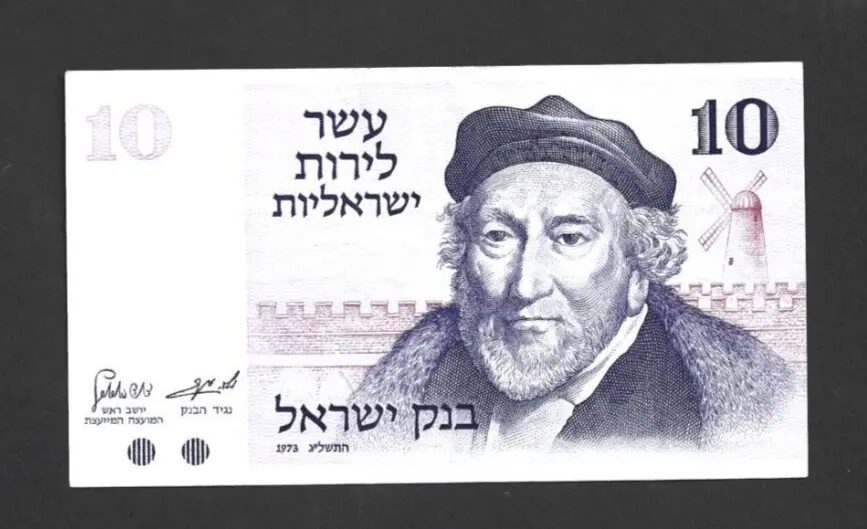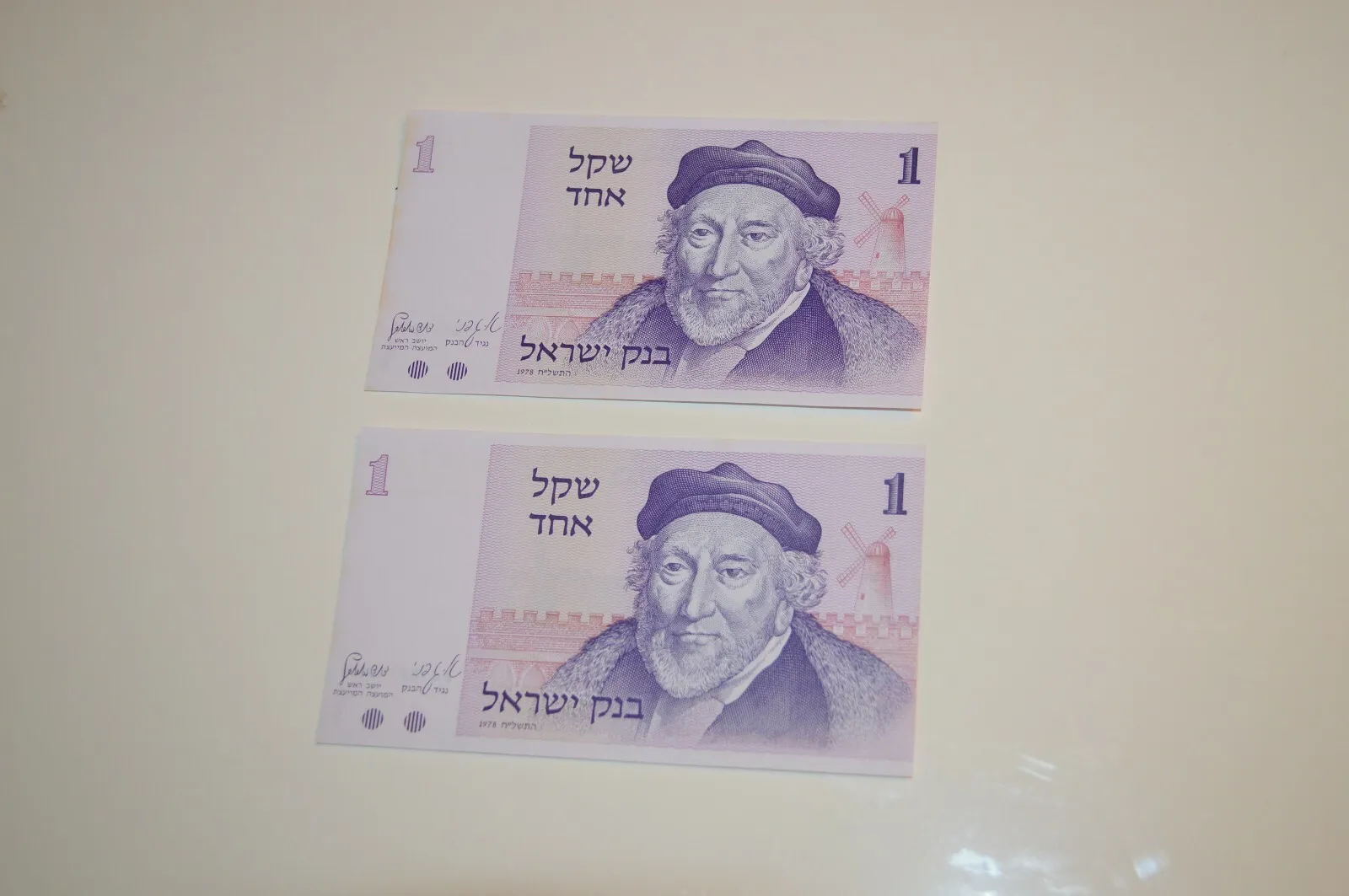-40%
**2 GREEN BARS**, ISRAEL 50 Sheqalim,1978, #P-46c XF .CUT - SEE PHOTO .RARE
$ 44.88
- Description
- Size Guide
Description
**2 GREEN BARS**, ISRAEL 50 SHEQEL Sheqalim,1978, #P-46c XF .Cut - See photoRARE
50 Sheqel
Obverse: David Ben-Gurion
Reverse: Golden Gate, Jerusalem
Dominant color: ivory-brown
Dimensions: 153 x 76 mm
Signatures: Arnon Gafni, Governor Bank of Israel; David Horowitz, Chairman Advisory Council
Printers (unverified): Royal Joh. Enschedé, Haarlem/Netherlands
Date of issue: 24 February 1980
The 50 Sheqalim banknote is dedicated to David Ben-Gurion (1886-1973), Israel's first prime minister from 1948 until 1963 (except an almost two-year long retirement in 1954-55). Ben-Gurion is regarded as the architect, founder and prime builder of the State of Israel. David Ben-Gurion was born in Plonsk, Poland in 1886 as David Gruen. Prior to his emigration to the Land of Israel in 1906, he had already been an active Zionist in his native Poland. Immediately upon his arrival he became one of the main leaders of the fledgling Yishuv (the Jewish community in Palestine), was instrumental in the creation of the first agricultural settlements, and the establishment of the self-defense group "Hashomer" (The Watchman). In 1910 he officially adopted the name Ben-Gurion (lion cub). Deported by the Ottoman authorities, he traveled on behalf of the Zionist cause to New York, where he met and married Paula Monbesz. Back in Eretz Israel, Ben-Gurion was a founder of the trade unions, in particular the national federation, the Histadrut, which he dominated from the early 1920s. He also served as its chairman, and from 1935 headed the World Zionist Organization and Jewish Agency. Having led the struggle to establish the State of Israel in May 1948, Ben-Gurion became prime minister and defense minister. As premier, he oversaw the establishment of the state's institutions. He presided over various national projects aimed at the rapid development of the country and its population, such as absorbing massive waves of immigrants, rapid industrialization including a partially self-supporting national defense industry, construction of the national water carrier, rural development projects, and the establishment of new towns. In particular, he called for pioneering settlement in outlying areas, especially in the Negev. In late 1953, Ben-Gurion left the government, retired to Kibbutz Sde Boker in the Negev, and returned to political life 1955. Despite bitter opposition, Ben-Gurion supported the establishment of relations with West Germany and the Reparations Agreement, which gave a boost to Israel's development in many fields. In 1963 Ben-Gurion resigned, but remained politically active. After a split with his Mapai party (which soon thereafter became a dominant part of the present-day Labor Party), and a later attempt to re-enter politics independently, Ben-Gurion retired from political life in 1970 and returned to Sde Boker, where he died in 1973. TIME Magazine ranks David Ben-Gurion as one of the "twenty leaders who helped to define the political and social fabric of our times".
Combine
shipping
